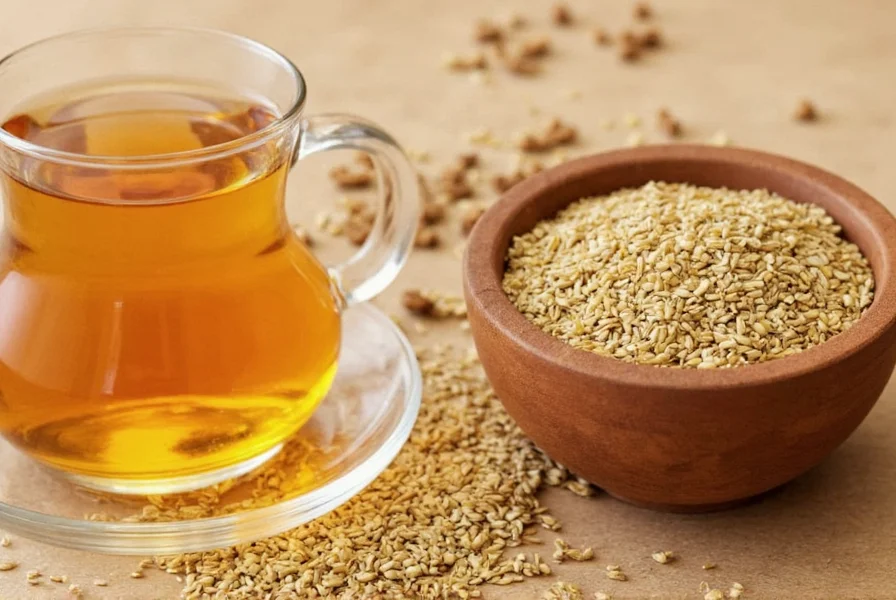Fenugreek tea has gained significant attention in herbal medicine circles for its potential health benefits. This ancient remedy, derived from the seeds of the Trigonella foenum-graecum plant, offers a distinctive flavor profile and therapeutic properties that have been utilized across various cultures for centuries. Unlike caffeinated beverages, fenugreek tea provides a naturally caffeine-free option with potential medicinal properties worth exploring.
Historical Use and Botanical Background
Fenugreek, a member of the legume family, has been cultivated since ancient Egyptian times. Historical records show its use in traditional Ayurvedic and Chinese medicine for treating inflammation, digestive issues, and metabolic conditions. The seeds contain compounds like diosgenin and 4-hydroxyisoleucine that contribute to its potential therapeutic effects. When prepared as tea, these bioactive compounds become water-soluble, allowing for easier absorption by the body.

Nutritional Composition of Fenugreek Seeds
The seeds used to make fenugreek tea contain several valuable compounds:
| Compound | Concentration in Seeds | Potential Benefits |
|---|---|---|
| Dietary Fiber | 24.6g per 100g | Digestive health, blood sugar regulation |
| 4-Hydroxyisoleucine | 0.5-1.0% | Insulin-stimulating properties |
| Diosgenin | 0.3-0.6% | Potential hormonal regulation |
| Vitamins (B6, C) | Moderate levels | Metabolic support, antioxidant effects |
Evidence-Based Health Benefits of Fenugreek Tea
Research suggests several potential benefits of regular fenugreek tea consumption:
Blood Sugar Management
Multiple clinical studies indicate fenugreek tea may help regulate blood glucose levels. A 2020 review published in Nutrients found that fenugreek supplementation significantly reduced fasting blood glucose in type 2 diabetes patients. The soluble fiber and 4-hydroxyisoleucine in fenugreek seeds appear to slow carbohydrate digestion and enhance insulin sensitivity.
Digestive Health Support
Fenugreek tea's mucilage content provides soothing effects on the digestive tract. Research in the Journal of Ethnopharmacology demonstrated its effectiveness in reducing symptoms of indigestion and heartburn. The tea's anti-inflammatory properties may also benefit individuals with mild gastrointestinal inflammation.
Lactation Enhancement
For nursing mothers, fenugreek tea has shown promise as a galactagogue. A 2018 study in Complementary Therapies in Clinical Practice reported increased milk production in women consuming fenugreek compared to placebo. However, researchers noted individual responses vary significantly.
Proper Preparation of Fenugreek Tea
Preparing fenugreek tea correctly maximizes its potential benefits while minimizing bitterness:
- Measure 1-2 teaspoons of whole fenugreek seeds per 8 ounces of water
- Lightly crush seeds to release compounds (optional but recommended)
- Bring water to a boil, then remove from heat
- Pour hot water over seeds and steep for 3-5 minutes for mild flavor, up to 10 minutes for stronger medicinal effects
- Strain and add lemon or honey to taste (avoid excessive sweeteners)
For best results when using fenugreek tea for specific health purposes, consume 1-2 cups daily. Those using it for blood sugar management may benefit from drinking it before meals, while nursing mothers often consume it between feedings.

Safety Considerations and Potential Side Effects
While generally safe for most adults, fenugreek tea requires caution in certain situations:
- Hypoglycemia risk: May lower blood sugar excessively when combined with diabetes medications
- Allergic reactions: Possible for those with peanut or chickpea allergies (same plant family)
- Pregnancy concerns: May stimulate uterine contractions; avoid during pregnancy
- Breastfeeding considerations: Generally safe but monitor infant for digestive changes
- Blood thinning: Contains coumarin compounds; use caution with anticoagulant medications
The characteristic maple-like aroma of fenugreek tea comes from sotolone, a compound also found in fenugreek's characteristic smell. Some people may notice a slight maple scent in their sweat or urine after consumption, which is harmless.
Who Should Avoid Fenugreek Tea
Certain populations should exercise caution or avoid fenugreek tea entirely:
- Pregnant women due to potential uterine stimulation
- Individuals with hormone-sensitive conditions (fenugreek may have estrogenic effects)
- People scheduled for surgery within two weeks (may affect blood sugar control)
- Those with known allergies to legumes
- Individuals taking medications for diabetes or blood thinning
Comparing Fenugreek Tea to Other Herbal Remedies
Fenugreek tea offers unique properties compared to other popular herbal teas:
- vs. Chamomile: Fenugreek provides more metabolic support while chamomile excels for relaxation
- vs. Ginger: Both aid digestion, but fenugreek has stronger evidence for blood sugar management
- vs. Fennel: Similar digestive benefits, but fenugreek has more research supporting metabolic effects
- vs. Peppermint: Fenugreek offers more comprehensive metabolic benefits while peppermint excels for immediate digestive relief
Integrating Fenugreek Tea into Your Wellness Routine
For those considering adding fenugreek tea to their regimen, start with these evidence-based recommendations:
- Begin with small amounts (½ cup daily) to assess tolerance
- Monitor blood sugar levels if using for glucose management
- Consult healthcare providers if taking medications or managing health conditions
- Combine with a balanced diet rather than relying on it as a standalone solution
- Track any changes in symptoms or side effects for the first two weeks
Remember that herbal remedies like fenugreek tea work best as part of a comprehensive approach to health rather than as miracle cures. The most effective wellness strategies incorporate multiple evidence-based approaches tailored to individual needs.
Frequently Asked Questions About Fenugreek Tea
What does fenugreek tea taste like?
Fenugreek tea has a distinctive flavor profile—slightly bitter with nutty, maple-like undertones. The taste becomes more pronounced with longer steeping times. Many people describe it as earthy with a subtle sweetness reminiscent of burnt sugar. Adding lemon or a small amount of honey can balance the bitterness while preserving the tea's potential health benefits.
How quickly does fenugreek tea work for increasing milk supply?
For lactating women, effects on milk production typically become noticeable within 24-72 hours of regular consumption. Research suggests consuming 2-3 cups daily provides optimal results. However, individual responses vary significantly, and not all women experience increased milk production. It's recommended to monitor both milk output and infant feeding patterns when using fenugreek tea for this purpose.
Can fenugreek tea help with weight loss?
While fenugreek tea isn't a weight loss solution, it may support metabolic health in ways that could complement weight management efforts. Its fiber content promotes satiety, and blood sugar regulation properties may reduce cravings. However, clinical evidence specifically linking fenugreek tea to significant weight loss is limited. For sustainable weight management, combine fenugreek tea with balanced nutrition and regular physical activity.
How long can you safely drink fenugreek tea?
For most adults, fenugreek tea can be consumed safely for 2-3 months continuously. Long-term safety data is limited, so taking periodic breaks (1-2 weeks off after 2-3 months of use) is recommended. Nursing mothers often use it for 4-8 weeks postpartum, while those using it for blood sugar management may incorporate it into their routine with periodic healthcare provider check-ins to monitor effects.
Does fenugreek tea interact with medications?
Yes, fenugreek tea may interact with certain medications, particularly diabetes medications (potentially causing hypoglycemia) and blood thinners (increasing bleeding risk). It may also affect how the body processes medications metabolized by the liver. If taking prescription medications, consult with a healthcare provider before regularly consuming fenugreek tea to avoid potential interactions and ensure safe usage.











 浙公网安备
33010002000092号
浙公网安备
33010002000092号 浙B2-20120091-4
浙B2-20120091-4